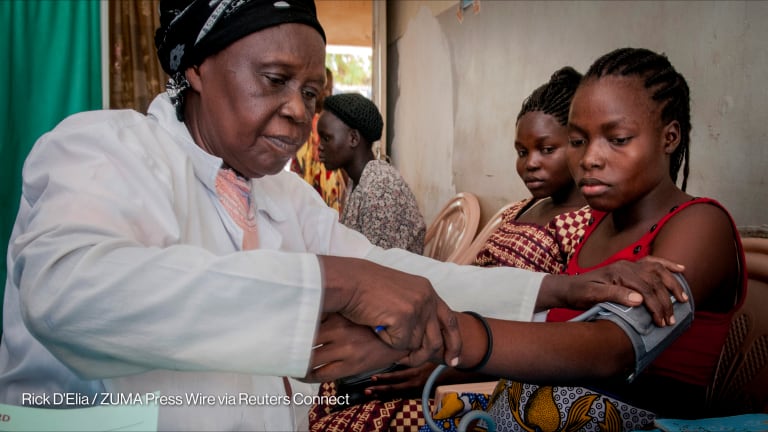
Infrastructure investments in roads, railways, ports and the energy sector are vital to achieving the Millennium Development Goals, Kiyoshi Kodera, vice president of the Japan International Cooperation Agency, said at last week’s MDG summit in New York.
Asia, Kodera said, faces new challenges including aging societies, climate change and natural disasters, urbanization, income disparity within states and a need for economic rebalancing.
JICA’s approach to development rests on addressing Asia’s common problems, reducing income disparity and increasing cooperation with new and traditional regional partners including the World Bank, Asian Development Bank and Association of Southeast Asian Nations.
Apart from infrastructure, promoting “human security” in areas such as health and education is also vital, Kodera said. Human security encourages local communities to take part in the planning, implementation and maintenance of projects in such areas of development, according to a JICA news release.
JICA launched new global health and education policies at the MDG summit in New York.
Under Japan’s new education policy, the donor nation will provide USD3.5 billion in the next five years to help achieve the MDG on education and objectives of the Education for All initiative. The assistance will focus on providing quality education for all. It will promote the creation of a knowledge-based society through technical and vocational education, training and higher education, and providing education in nations ravaged by disaster or conflict.
Meanwhile, Japan will provide another USD5 billion over five years in a bid to attain the health-related MDGs including promoting maternal and child health and combating AIDS, tuberculosis and malaria. Under its new global health policy, Japan will implement evidence-based heath interventions by fostering country ownership and securing the “necessary resources” for health initiatives. The donor nation will also develop human resources on policymaking and strengthening communication strategies to ensure “high levels” of expertise and transparency on global health policy formulation.
To promote maternal and child health, Japan will deliver “a more effective” package of preventive and clinical interventions for maternal and newborn survival at both community and facility levels. Meanwhile, it will support the work of the Global Fund to Fight AIDS, Tuberculosis and Malaria to curb the spread of these three diseases.








